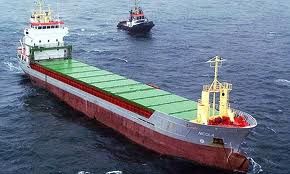
While the effects of the earthquake and tsunami which devastated north east Japan and wrecked a nuclear power station are still fresh in people’s minds, nuclear power
attracts a certain scepticism. Nevertheless, there are more than 600 working reactors around the world and of these some 200 are at sea, mostly in warships. There are some 56 years of operating experience with these ships and they have a remarkably good safety record.
There may be reservations about nuclear power by people who erroneously equate a nuclear power plant with a nuclear bomb, but there are increasingly interesting advantages in a merchant ship that required fuelling only every seven years or so, and from which there were no harmful emissions whatever. The increasing cost of fossil fuels and the need to reduce CO2 are thus driving a new interest in marine nuclear propulsion.
Would people be safe aboard a nuclear merchant ship? Each year several hundred paying passengers are happy to set sail on units of the Russian nuclear icebreaking fleet that have been working in the polar latitudes for many years. But much depends on public sentiment in ports, where there may well be an extreme reaction to the visit of a nuclear powered merchant ship.
Current research into the viability of nuclear merchant ships is considering the technical feasibility, public attitudes, commercial prospects and regulatory requirements and while it may not result in immediate developments, there is a certain amount of optimism that a nuclear powered merchant ship might be considered feasible.
But a lot of questions will need to be answered before such a ship could come into operation. Specialist engineers would have to be trained, and the manpower requirements would clearly be more demanding than that of a conventional diesel plant. The operation of a commercially trading vessel is very different to a warship, and even the regime aboard a nuclear icebreaker. Regulators and governments would have to be satisfied beyond any doubt that the safety of the ship would always be assured and that all reasonable risks had been assessed. Clearly, concerns about piracy and terrorism would have to be addressed for such a project to become politically viable. Eventual disposal remains a very live problem.
Capital costs of a nuclear vessel would be high, and bearing in mind its specialist crew, its operating costs would not come cheap. Nevertheless, the fact that alternatives must eventually be found for fossil fuels and the environmental attractions from what is largely proven technology may well see some action on the nuclear front.
Source: Bimco
We use cookies to improve your experience. By continuing to use our site, you accept our Cookies, Privacy Policy,Terms and Conditions. Close X